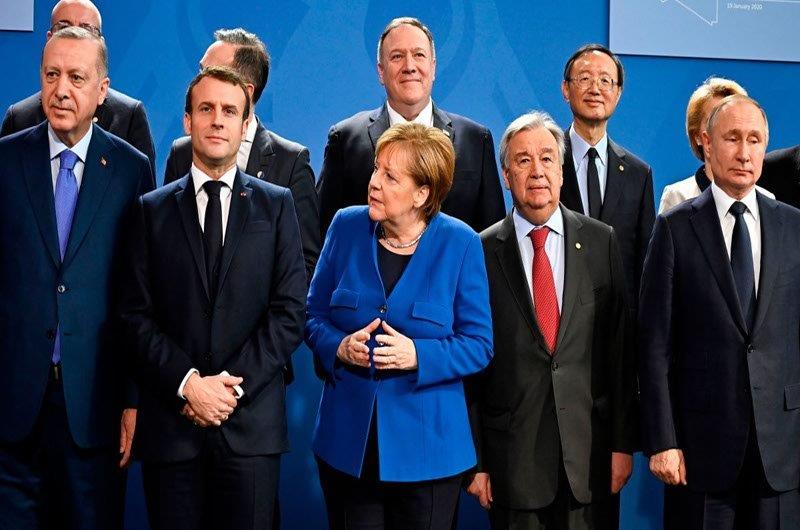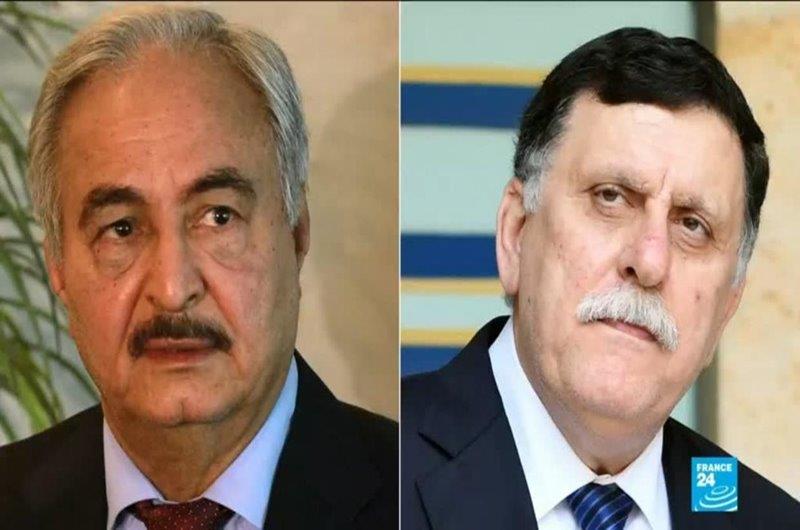The leaders of the countries with interests in Libya gather in Berlin for the Libyan peace summit; agree to prioritise arms embargo imposed by the UN on Libya.
The leaders of the countries who are involved in the uprising civil war and the Libyan conflict have vowed to respect the ceasefire agreements and work together to peacefully mediate between both the warring sides in the Libya peace conference on Sunday. Libya has been facing protests and civil war since last April after its military commander Khalifa Haftar waged war with its leader Fayez al-Sarraj whose government is recognised by the UN.
The situation in Libya has worsened because of foreign interventions after Haftar’s forces challenged the Tripoli government. The past months of chaos and unrest in Libya have claimed over 2000 lives; more than 150,000 have deserted their homes and fled the lands, and reports of children being recruited into the regiment. All the participants involved have given their consent to arms embargo to the Libyan forces to contain the situation.
After failed attempts to bring both Haftar and al-Sarraj’s side together and to resolve their issues through diplomatic channels, the UN finally held the Libya peace summit in Berlin. The leaders of the United Nations, European Union, African Union and the Arab league attended the summit while the countries invited were Egypt, Congo, Algeria, China and UAE. France’s Macron, Italy’s Conte, Turkey’s Erdogan, Russia’s Putin, British Prime Minister Johnson and, US Secretary of State Pompeo were present in the conference with the host German Chancellor Merkel and the UN Secretary-General Guterres.
Libya has become the next warring zone where its internal conflict has been turned into a ‘tangled proxy war’ with the foreign powers involved in. Haftar’s forces had enforced an oil blockade in Libya to pressurise the summit by shutting down oil ports and fields last week. Turkey and Russia had failed to bring in both the Libyan leaders for peaceful mediation in Moscow last week.
The Libyan conflict
Libya’s Haftar is the military chief of the renegade Libyan National Army (LNA) who has challenged the democratic powers and laid claims in the administration of the eastern cities from Tobruk. Haftar gets air support from UAE, backing from the Russian forces and the political support from neighbouring Egypt.
After overthrowing the Gadaffi administration, Libya has been under the democratic administration, with the present Government of National Accord (GNA) based in Tripoli being led by Fayez al-Sarraj. The Tripoli government is backed by Turkey, Qatar and Italy. Libya’s GNA has been able to fight off Haftar for this long because of Turkey’s direct involvement in the military confrontation. The parliament of Ankara has signed off for deploying its military forces in Libya.










